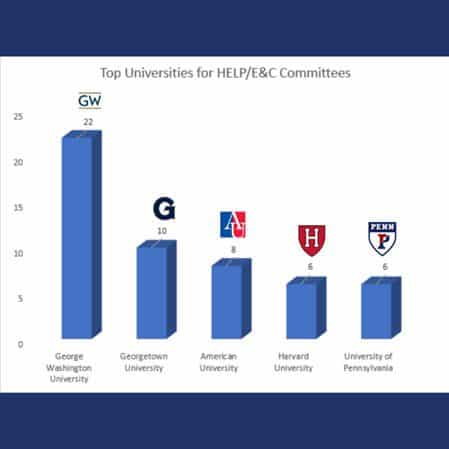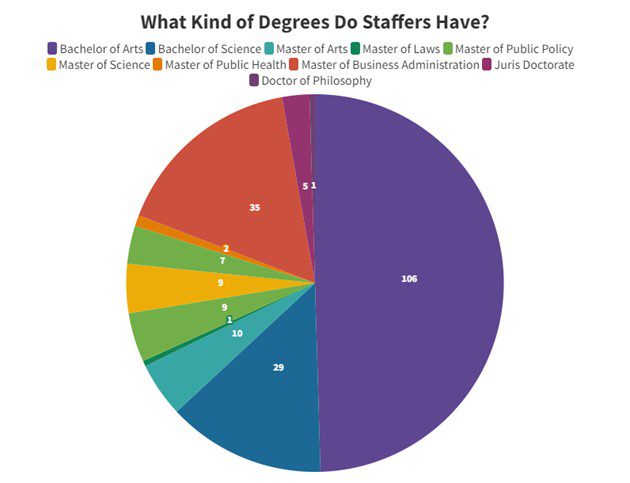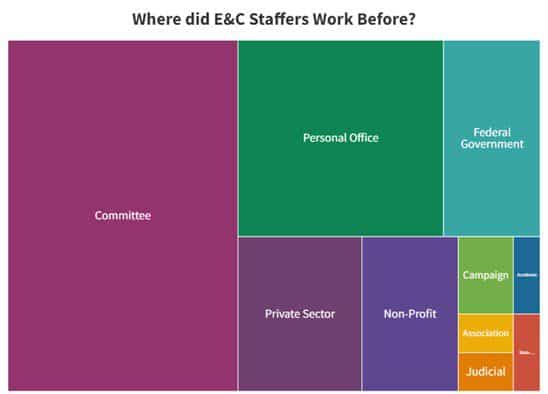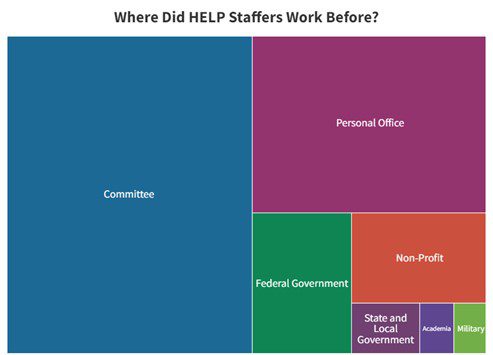Our recent analysis, Breaking Down HELP/Energy and Commerce, gave insight into the backgrounds of Members of Congress on the Senate Health, Education, Labor, and Pensions Committee, and the Committee and Energy and Commerce. But what does it take to work on these committees as a staffer? Leadership Connect analyzed the education and career history of these staffers to give you an overview of how they landed these jobs.
While the career experiences of Staff Directors on the Energy and Commerce Committee range prior to their committee appointments, all of them have previous experience on Capitol Hill in senior leadership roles. All but one Staff Director worked previously on the committee, and most of them have experience off Capitol Hill. Other examples include working for federal agencies like the Centers for Disease Control and the Department of Education, mental health nonprofits, and pharmaceutical companies. From the data set evaluated of the four Staff Directors, two have their Masters in Public Policy (MPP) or their Masters in Public Administration (MPA).
The education breakdown across the Energy and Commerce committee shows a majority attended George Washington University for multiple degrees. Nine different staff members went there at some point in their educational tenure — George Washington has the largest presence on the Hill.


Within the Energy and Commerce committee, almost all the staff who have Policy Advisor or Policy Director in their title hold an advanced degree across both party lines. Many of their previous careers include Capitol Hill on committees and personal offices, health nonprofits, policy segments of political campaigns, and COVID agencies in federal and state governments. Both career and education are significant aspects of the E&C committee in order to move into a policy manager role.








